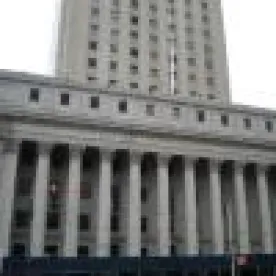A recent decision of the Second Circuit Court of Appeals has added an additional eligibility requirement for the filing of Chapter 15 cases. In Drawbridge Special Opportunities Fund LP v. Barnet (In re Barnet), ___ F.3d ___, 2013 WL 6482499 (2d Cir. 12/11/2013), the Court applied the section 109 requirement that the residence, domicile, place of business, or assets of the debtor be in the United States in order for its foreign representative to obtain recognition of proceedings instituted under Chapter 15. Reversing the bankruptcy judge on direct appeal, the Court held that since the debtor in Barnet had no United States assets, recognition of the foreign main bankruptcy proceeding pending in Australia was improper. While this decision will not affect most of the Chapter 15 cases that are brought to administer assets located in the United States, it will be important in cases like Barnet where the Chapter 15 proceeding was instituted to obtain discovery or other relief against persons or entities in the United States.
The basic dispute was whether the section 1502(1) definition of “debtor” as merely “an entity that is the subject of a foreign proceeding” pre-empted application of the section 109(a) provision that “only a person that resides or has a domicile, a place of business, or property in the United States…may be a debtor under this title.” Compare 11 U.S.C. §§ 109(a) with1502(1). Faced with conflicting statutory provisions, the Court initially analyzed the issue as a plain language question, and then buttressed its result based on legislative intent and policy arguments.
The Court focused on the language of section 103, providing that Chapter 1 of Title 11, which includes section 109(a), applies in a case under Chapter 15. See 11 U.S.C. § 103(a). Thus, notwithstanding the section 1502 standalone definition of debtor, a foreign entity is not eligible to be a debtor under Chapter 15 unless it has property in the United States or meets the residence, domicile or place of business tests established for eligibility under section 109.
The foreign representative responded with the very interesting argument that the foreign entity is not a “debtor” in the United States case, but rather is only a debtor in the case pending in the foreign country. Unlike the other relief chapters of the Bankruptcy Code that are filed by or against an eligible debtor, a Chapter 15 case is filed by a foreign representative seeking only recognition of the foreign proceeding, and not United States bankruptcy relief for the foreign debtor. The Court rejected that argument, finding that the many references to a debtor in Chapter 15 meant that even though sought by the foreign representative, the relief operates for the benefit of the debtor.
The Court had more difficulty dispensing with Chapter 15’s venue provision, which provides for the venue of such cases where “the debtor does not have a place of business or assets in the United States…” See 28 U.S.C. § 1410(2). Without explaining why that provision would be necessary if section 109(a) applied in Chapter 15, the Court dismissed section 1410(2) as “purely procedural.” Focusing on the “unambiguous nature of the substantive and restrictive language used in section 103 and 109” the Court stated that “to allow the venue statute to control the outcome would be to allow the tail to wag the dog.”
Although the Court’s addition of a United States property requirement presents a new hurdle to Chapter 15 relief in certain limited instances, the ease with which the section 109 property test can be satisfied means that the decision may have little practical effect overall. As but one of many examples, the Delaware bankruptcy court held in In re Global Ocean Carriers, Ltd., 251 B.R. 31, 39 (Bankr. D. Del. 2000), that the unearned portion of the retainer paid to the debtor’s United States bankruptcy counsel was sufficient property to satisfy section 109. It is not unusual for a foreign debtor to obtain an asset or open a bank account in the United States in order to make it eligible under section 109(a), and the courts generally do not consider such actions to be impermissible forum shopping. Thus, even after Barnet, Chapter 15 eligibility should remain relatively easy to obtain in most instances, as the foreign debtor can simply acquire or place an asset — even a relatively small asset — in the United States.




 />i
/>i

